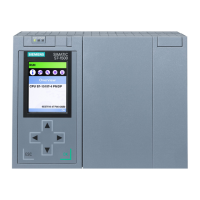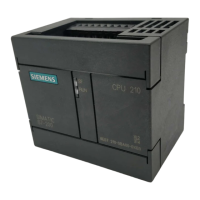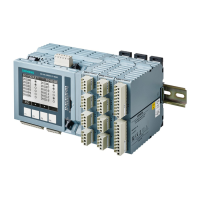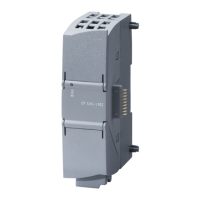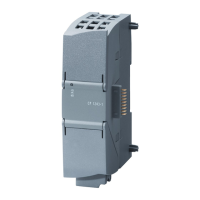Link-up and update
8.2 Conditions for link-up and update
CPU 410-5H Process Automation/CPU 410 SMART
110 System Manual, 10/2013, A5E32631667-AA
Conditions for link-up and update
Which commands you can use on the programming device to initiate a link-up and update
operation is determined by the current conditions on the master and standby CPU. The table
below shows the correlation between those conditions and available programming device
commands for link-up and update operations.
Table 8- 2 Conditions for link-up and update
Link-up and update as
PG command:
FW version in the
master and standby
CPUs
Available sync
connections
Hardware version on
master and standby
CPU
Switch to CPU with
Are identical 2 Are identical
Switching to CPU with
modified operating
Are different 2 Are identical
CPUs with changed
Are identical 2 Are different
Only one
synchronization link-up
is available over only
one intact redundant
Are identical 1 Are identical
Program execution is interrupted for a certain time during updating. This section is relevant
to you if this period is critical in your process. If this is the case, configure one of the
monitoring times described below.
During updating, the fault-tolerant system monitors the cycle time extension, communication
delay and inhibit time for priority classes > 15 in order to ensure that their configured
maximum values are not exceeded, and that the configured minimum I/O retention time is
maintained.
Note
If you have not define
d any default values for the monitoring times, make allowance for the
update in the scan cycle monitoring time. If in this case the update is cancelled, the fault
-
tolerant system switches to standalone mode: The previous master CPU remains in RUN,
and the
standby CPU goes into STOP.
You can either configure all the monitoring times or none at all.
You made allowances for the technological requirements in your configuration of monitoring
times.
The monitoring times are described in detail below.

